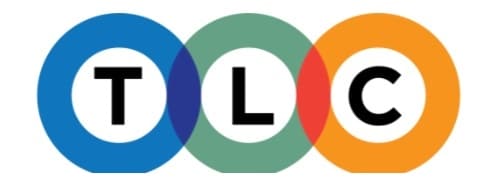
TEACHING LEARNING CENTRE
The success of 21st century learners depends on meeting the challenges of scientific and social competencies. The thin line separating engineering from science has diminished. Engineering graduates must now be on the crest of the wave. In order to prepare students for the increasingly complex roles, it is important to stimulate them to acquire myriad concepts and principles related to the subject. Unlike the learners of the past, students today have surpassed the traditional lecture-based instructions. They learn best when they are engaged in mini lectures integrated with simulated experiments. This inductive teaching can prepare students for the complex roles in the profession when they occupy the echelon as industrial employees, educators and researchers of the future.
In order to engage students in a comprehensive learning process it is essential for the teacher to explore the diverse ways in which learners demonstrate their intellectual ability other than the conventional ways of linguistic and mathematical abilities. The engineering staff is obligated to transform an undergraduate’s traditional learning experience to an enriching and lifelong learning process. The educator today has to comprehend that each learner is at a different learning level. While some learners enjoy and are quick at comprehending difficult and complex subject ideas, others may take time and may not enjoy the same levels of subject complexities.
Moreover, besides keeping in mind the personality and the nature of the new generation knowledge consumer, the teachers of today also need to acknowledge the demands of the industry from a graduating engineer who is no longer contented with basic subject knowledge. The teacher being sufficiently aware of the industry demands needs to prepare the learners to be equipped beyond classrooms and exams. Against this backdrop it is essential that the 21st century teachers too gravitate towards understanding the existing learner-diversity in their classroom as well as expose the learners to higher orders of thinking skills.
Leadership in the education space influences quality of learning through institutional building. Successful institution building requires academic leaders to innovate, inspire and transform institutions by working through constraints, adapting to changing global environments and expectations from all stakeholders. The key objectives include Developing Academic leaders who would be Icons of Education in India & a representative example of Global Academic Leadership, creating an awareness of Leadership competencies and equipping with necessary skills with the help of internationally benchmarked contents.
Vision
To be an Excellence Centre for maximizing the study, research, development and implementation of innovative and diverse methodologies, aided with technology in the teaching-learning process of the Institute; focus on pursuit of quality enhancement for higher technical education by enabling seamless interaction among teachers, students and experts, and to provide world class educators for the service of the nation.
Mission
To establish a productive and congenial educational environment in the Institute by motivating teachers and students towards a coherent and enjoyable education through exposure to research-based, scientifically-proven, and innovative teaching-learning methodologies, to promote high class research in education, to create and develop synergy between the teachers and students for a new and sustainable paradigm of higher technical education, with the ultimate aim of producing human resources of the highest professional and personal quality.
About Teaching-Learning Centre
The revolutionary changes brought about through enlightenment and the giant technological leaps in the paradigm of teaching-learning process has provided new methodologies for knowledge sharing. Under these circumstances it is essential for the teaching fraternity to hone their existing skills, develop new skills, and learn the nuances of the art, philosophy and science of teaching so that the teaching-learning process becomes more enjoyable, creative and productive for both the teachers and students. There is a need to connect three vital elements of education viz. faculty, student and the process of teaching and learning that aligns with the ambience.
A significant change required in this regard cannot happen by chance and hence a focused effort is needed from committed faculty and the administration.
To facilitate the much-needed change in the teaching-learning related activities and for improving the quality of education, an office formally charged with coordinating and directing all major activities like pedagogy, content and effective instruction has become inevitable. The success of several faculty development programmes (FDPs) that have been conducted convincingly, demonstrate not only the enthusiasm among the young faculty but also the well felt need to foster a dedicated effort to cater the challenges of retaining learning abilities amongst the learners.
High-Impact Faculty development programs signify a continuous effort to transform engineering education at any institution. The Faculty Development programs provide a platform to give the educators an insight into the New Education Policy (NEP), and Education 5.0, a need for transforming the present education system to action or outcome-based system. Collaborations often strengthen faculty development initiatives. Development of a Teaching Learning Centre (TLC) that would throb with sustainable activities for faculty development along with strengthening the soft skills, analytical skills and the problem-solving skills of the students, will assure a significant transition.
A continuous effort for improvement in teaching will enhance the efficiency of the course delivery and raise interest and motivation levels of the students in understanding engineering and science subjects. There is a need for such an activity in more regular and rigorous fashion in order to align with the above vision and mission.
Prof S L Satheesh Kumar
Head, Teaching Learning Centre & Corporate Relations
BNM Institute of Technology
Email ID: slskumar@bnmit.in

